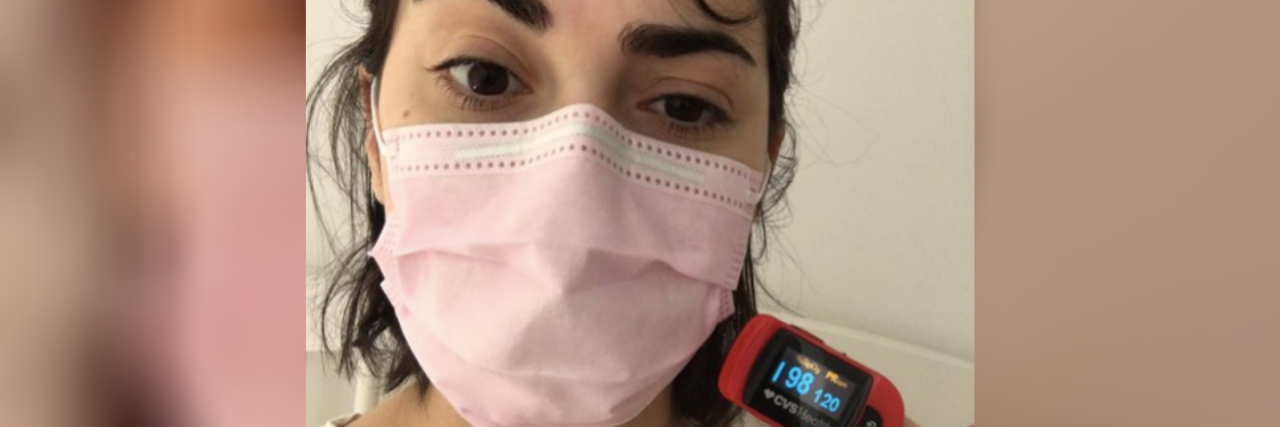Masks Are Not a Health Risk, Just Ask Chronically Ill People
Editor's Note
Image via @65PinkRoses on Twitter
Masking has been a controversial topic throughout the COVID-19 pandemic as some individuals loudly proclaim their refusal to wear a mask. Many of these “anti-maskers” publicly defend their choice not to wear a mask by citing health conditions such as asthma. But, as someone with a fatal lung disease myself, I can say with complete certainty that lung diseases do not prevent anyone from wearing a mask. Masks do not impede breathing and oxygen saturation, nor do they cause an overexposure to carbon dioxide.
I made a Tweet about this very situation because I am tired of having illnesses such as mine falsely used to justify the decision not to wear a mask. Chronically ill people are essential to the discussion around masking not because chronic illness is a reason refuse a mask, but because we have wisdom about masking to share. For example, people with cystic fibrosis are uniquely positioned in this pandemic to be knowledge bases since we have years of experience practicing infection-control. We wear masks often, and we always need to stay six feet apart from other CFers to avoid cross-infection. We know how to survive and thrive while wearing a mask and have been doing so for decades.
I have cystic fibrosis and also asthma. I’ve been wearing masks like this one every day in crowded spaces (like public transit, classrooms, and planes) for the last 7 years. Surprisingly ???? it does not impact my oxygen levels! Wear a mask. pic.twitter.com/LucrfgpO2U
— Elsie Tellier Caballero ♿️✊???????? (@65PinkRoses) June 28, 2020
People should be turning to sick and disabled individuals as experts during this pandemic, and yet many are instead ignoring our voices in favor of using disability as an excuse to dismiss the necessity of masks. It is rare for a disability to exist that would preclude someone from being able to wear a mask, but in those cases, there are adaptive alternatives. For example, plastic face shields can be a reasonable accommodation for individuals with facial differences or skin allergies that make wearing a mask particularly difficult. Masking is uncomfortable for everyone, and maybe more so for individuals with post-traumatic stress disorder (PTSD) or sensory differences, but it is not impossible. To improve compliance and make masking easier for everyone, there should be greater government involvement in providing free masks and for better guidance on affordable/adaptive shielding techniques. But these considerations do not negate the fact that masking is not a question of freedom or autonomy — it is a question of having for compassion for others.
Resource: For more about COVID-19 and asthma, check out this resource from the Asthma and Allergy Foundation of America.
To insist that wearing a mask is “muzzling” or “silencing” or in any other way “oppressive” fully disregards how many chronically ill individuals use masks and other PPE to survive. Masks are an accessibility tool. It would not be safe for me to go to the hospital or put myself into a similarly risky situation without the use of a mask. I wore a mask before the COVID-19 pandemic to protect myself and others, and I will continue to do so for the remainder of my life even after the pandemic is over.
No one’s human rights are being infringed, and masks are not putting anyone in danger. Wear a mask and save lives. It’s that simple.
Read more stories about COVID-19 and masks below:

